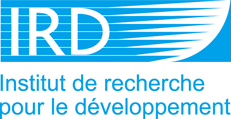Alain Fontaine
Alain Fontaine is currently working as a scientific advisor for public health policy in the Strategic Analysis and Research Policy Department attached to the General Director for Health in the French Ministry of Health.
The Unit’s mandate includes providing methodological assistance to other units in the Ministry in order to improve the use of scientific evidence in the development of public health policy and programs, while working with both the research community and stakeholders on the development of the evidence base required for health policy analyses and decisions.
Alain Fontaine graduated with honors as a medical doctor from the University of Paris, and received MPH and DrPH degrees in Health Policy and Administration from the University of North Carolina at Chapel Hill.
Issues in the economic evaluation of the health impacts of climate change
From an economic perspective, the level and type of resources that should be allocated to policies and interventions addressing the health consequences of climate change could be evaluated with respect to the value assigned to these health consequences and to the costs and expected effectiveness of different types of interventions.
Developing such analyses for policy makers raises, however, several significant conceptual and methodological issues.
Uncertainty about the health effects of climate change, and about the effectiveness of the interventions considered, must be taken into account, given, additionally, the systemic complexity of individual and societal factors affecting health outcomes.
Beyond the direct medical costs associated with the treatment of diseases, for which data may be most easily available, valuing health effects requires clarifying the standpoint adopted for the analysis, considering indirect and intangible costs associated with health outcomes.
Continued efforts are also necessary to further the development and validation of summary indicators capturing both morbidity and mortality consequences outcomes, to assign monetary values to these indicators, and to improve their communication to policy makers.
Finally, developing policy alternatives requires taking into account both short- and long-term costs and consequences, and their distribution, in perspective with the accountability of current decision-makers to present and future constituencies.
If you wish to contact Alain Fontaine, please click here




